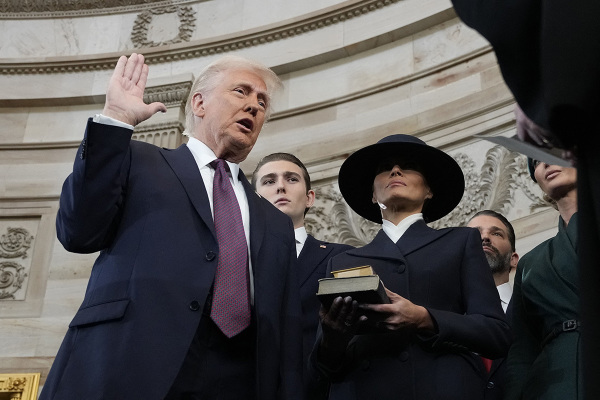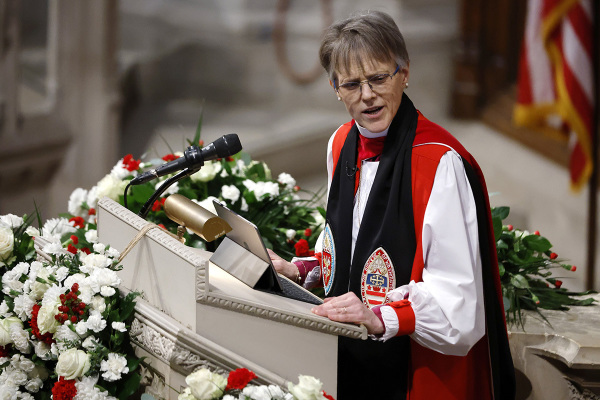Poll: 3 in 10 Americans Say They Believe the Bible Word for Word
Modern society frequently challenges the Bible as the actual word of God. However, a recent Gallup poll reveals that three in 10 Americans interpret the Bible literally, saying it is the actual word of God to be interpreted literally, word for word.
A breakdown of the Gallup poll reveals that the majority of Americans believe that the Bible is the inspired word of God, rather than the actual word of God or a book of fables, legends, history, and moral precepts.
Gallup polls have tracked whether Americans take the Bible literally for the past 40 years.
The overall findings from Gallup show that the percentage of Americans taking a literal view of the Bible has declined over time, from an average of 38 percent from 1976-1984 to an average of 31 percent.
However, highly religious Americans, particularly those of Protestant faiths, still commonly believe in a literal interpretation of the Bible.
Fifty-four percent of those who attend religious services on a weekly basis believe in a literal interpretation of the Bible, which is more than twice the percentage of those who attend church less often, according to Gallup.
Some Christian leaders believe it would be best to read any biblical text in its original language, since meanings are often lost in translation. Other leaders believe the King James Version is the closest to the original translation-and it is easier for the average American to read and comprehend.
“Reading the word of God allows Him to talk to us and show us how to live. It is as simple as that. God never wanted us to complicate matters of faith like we tend to do,” said Dr. Michael Livingston, a retired Baptist preacher in Birmingham, Ala.
“Believing in the Bible is about faith – plain and simple. It is a book like no other and has stood the test of time as a historically accurate piece of work that is also cohesive as only God can accomplish."
Hundreds of books written on the subject about the evidence of the divine inspiration of the Bible show that there are many and varied opinions. Some people do not believe in the teachings of the Bible because they tend to believe that it is full of mistakes and is no longer relevant to our modern world.
Christian authors Henry Morris and Martin Clark agree that the Bible contains remarkable structure and should be stressed.
“Although it is a collection of 66 books, written by 40 or more different men over a period of 2,000 years, it is clearly one Book, with perfect unity and consistency throughout,” Clark said.
“The men of the Bible were transmitting the very Word of God, infallible and authoritative in the highest degree.”
He said this is an amazing thing for any writer to say, and if the 40 or so men who wrote the Scriptures were wrong in these claims, then they must have been lying, or insane, or both.
“The historical accuracy of the scriptures is likewise in a class by itself, far superior to the written records of Egypt, Assria, and other early nations,” he said.
Over the years, Gallup has consistently found strong differences in views of the Bible as the "actual word of God" by religiosity and education.
The Gallup poll also shows that belief in a literal interpretation of a Bible declines as a person’s education increases. Forty-six percent of Americans with a high school education or less take the Bible literally, compared with no more than 22 percent of Americans with at least some college education.
The majority of Americans with at least some college education believe the Bible to be the inspired word of God, according to the poll.
Other results from Gallup show Protestants (including those who identify themselves as "Christian" but not Catholic or Mormon) are the most likely religious group to believe the Bible is literally true.
Forty-one percent of Protestants hold this view, while a slightly larger 46 percent take the Bible to be the inspired word of God.
Two-thirds of Catholics believe the Bible to be the inspired word of God, while 63 percent of those with “no religion” think the Bible is not the word of God at all but just a book of fables.
Given the strong link between religion and politics in the U.S., it is not surprising that views of the Bible vary by party identification and ideology. The poll finds 42 percent of Republicans, compared with 23 percent of independents and 27 percent of Democrats, say the Bible is literally true.
Conservatives are much more likely than moderates and liberals to believe in a literal interpretation of the Bible. In fact, conservatives are as likely to believe the Bible is the actual word of God as to believe it is the inspired word of God.
Respondents to the Gallup poll were given three options as responses to the poll:
- The Bible is the actual word of God and is to be taken literally, word for word.
- The Bible is the inspired word of God, but not everything in it should be taken literally.
- The Bible is an ancient book of fables, legends, history, and moral precepts.
Results for this Gallup poll are based on telephone interviews conducted May 5-8, 2011, with a random sample of 1,018 adults, aged 18 and older.






















